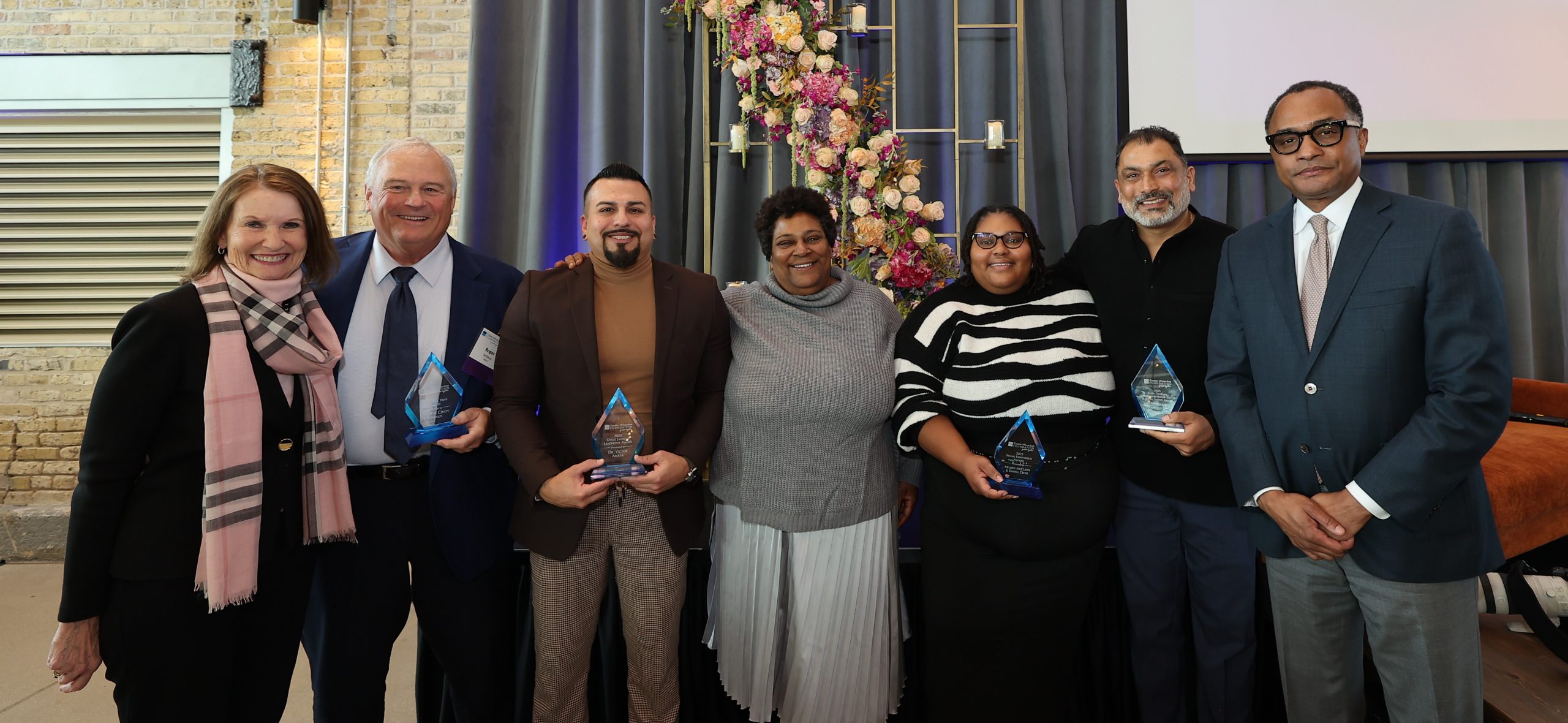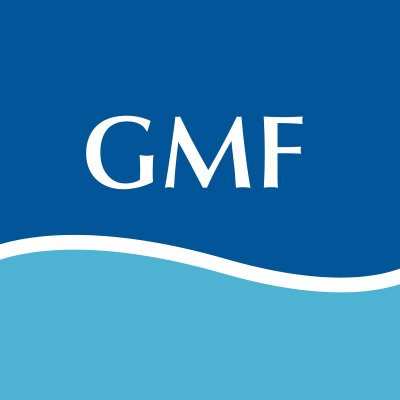Greater Milwaukee Foundation to marshal $30 million for economic recovery
Long-term impact investments preceded by immediate small business relief
Milwaukee, Wis., July 28, 2020 – To fuel an equitable economic recovery, the Greater Milwaukee Foundation will dedicate $30 million over the next five years to new impact investments focused on producing positive social and economic impact in the Milwaukee region. The Foundation is committing $15 million of existing resources and will seek the remainder through private fundraising.
Complementing this long-term commitment, the Foundation recently provided over $620,000 in immediate support to sustain local small businesses.
“The COVID-19 outbreak coupled with large-scale civil demonstrations for racial justice have only heightened the need for greater action and investment in our local communities,” said Ellen Gilligan, Foundation president and CEO. “Philanthropy, in partnership with community, must concentrate now on our long-term economic recovery – not just from the acute needs caused by the current crises but from the chronic disparities that have long kept Milwaukee from reaching its potential.”
Driven by a generational commitment to racial equity and inclusion since 2016, the Foundation is concentrating an increased share of resources among people and places that have been subject to declining or absent investment through the years and using a range of philanthropic tools to do so. The Foundation intends these strategies to create jobs, provide access to capital and help build personal wealth, which directly influences one’s ability to improve the quality of their life and those around them.
Impact investing for a thriving community
By doubling the $15 million already mobilized by the Foundation, community investors can join in catalyzing significant economic activity through impact investing. This tool offers a means of generating both social and financial returns, allowing capital to be reclaimed and reinvested in new projects. The $30 million impact investing strategy is just one component in the Foundation’s comprehensive approach to expanding resources that benefit the community.
Building off a $1 million impact investing pilot program that supported the growth of 47 new small businesses, helped create more than 85 jobs, redeveloped dilapidated properties into productive commercial spaces and attracted $4.9 million in additional public investment to local neighborhoods, the Foundation is scaling up its deployment of assets for community benefit.
The Foundation’s program focuses on three core priorities:
- Equitable Economic Opportunities – improving job access and wealth creation for Milwaukee residents through place-based job and business growth.
- Affordable Housing – creating or enhancing affordable housing options that retain existing residents as well as attract new residents and household types.
- Early Childhood Education – increasing the supply of quality, affordable, early childhood education services, leading to workforce development and upward economic mobility.
“Thoughtful projects that would bring excellent value to the community but are encountering barriers to traditional financing are often strong candidates for impact investing,” said Kathryn Dunn, senior vice president of community impact. “We’ve shown how this instrument can cultivate entrepreneurship – particularly in communities of color – increase employment opportunities and support creation of vibrant, mixed-income communities. Such investment is needed now more than ever.”
Grants for small business relief and recovery
Beyond the long-term approach of impact investing, the Foundation has provided immediate support to Milwaukee’s the small business sector by awarding grants to community intermediaries who offer business assistance:
African American Chamber of Commerce is using its $180,000 grant to provide small grants to businesses led by people of color who need support for rent, payroll and other emergency needs.
King Drive Business Improvement District is using its $150,000 grant to add capacity to the BID and provide direct support to small businesses impacted by marches and protests that have occurred along North Martin Luther King Jr. Drive.
LISC Milwaukee is using its $100,000 grant to make small grants for immediate needs like rent and payroll available for businesses in several city business improvement districts. The grant also supported a modest micro loan program for businesses in the commercial corridors of several Milwaukee neighborhoods.
Sherman Phoenix businesses and operators have received a total of $42,000 in grants for rent assistance and other relief through the advised funds of multiple Foundation donors.
Together, these grants will have a positive impact on an estimated 200 small businesses.
Interconnected strategies for economic recovery
Recognizing that the need is great and many factors contribute to the health of the community’s economy, the Foundation is taking a holistic approach to recovery that centers the voices and priorities of people most affected – collaborating on solutions that help families, neighborhoods and businesses while also focusing on long-term systems change. Interconnected efforts supported by the Foundation further include:
- Preventing resident displacement by hosting and contributing $100,000 of seed funding to the MKE United Anti-Displacement Fund. To-date, the fund has provided about $37,000 in property tax relief to 114 homeowners in the Harambee, Halyard Park, Brewers Hill and Walker’s Point neighborhoods who experienced rising taxes due to nearby development.
- Helping stabilize the early childhood education sector by joining with the Home Grown Child Care Emergency Fund to provide $350,000 in grants to 140 licensed family and center-based providers in areas of Milwaukee with the highest concentration of black and Hispanic children. Sustaining the sector – important for child development, jobs and its role in enabling parents to return to work – is a priority for the MKE Civic Response Team, in which the Foundation has a leadership role.
- Making a transformative, place-based investment in partnership with the Medical College of Wisconsin and Royal Capital Group that will bring complementary resources, jobs, mixed-income housing and valued services to the Halyard Park, Harambee and Brewers Hill neighborhoods. This includes the redevelopment of the former Gimbels-Schuster’s department store, where the Foundation’s headquarters will be relocated.
- Supporting a wide array of COVID-19 relief efforts throughout the community. The Foundation’s total commitment to coronavirus relief is over $8.4 million, with nearly $1 million going toward community development and employment/training.
- Strengthening past investments. As the pandemic began affecting places and organizations supported through the impact investing pilot program like Sherman Phoenix, 5 Points Art Gallery & Studios and Wisconsin Women’s Business Initiative Corporation, the Foundation reduced or changed due dates on loan payments and supported programming changes that aided in business stability.
About the Greater Milwaukee Foundation
The Greater Milwaukee Foundation is Wisconsin’s largest community foundation and was among the first established in the world. For more than a century, the Foundation has inspired philanthropy by connecting generous people to community needs that align with their interests. The Foundation was founded on the premise that generosity can unlock an individual’s potential and strengthen the community as a whole for everyone who lives here. We work in partnership with those who are committed to ensuring greater Milwaukee is a vibrant, economically thriving region that comprises welcoming and inclusive communities providing opportunity, prosperity and a high quality of life for all.
greatermilwaukeefoundation.org | @GrMKEFdn | facebook.com/GreaterMilwaukeeFoundation
NOTE: This press release was submitted to Urban Milwaukee and was not written by an Urban Milwaukee writer. While it is believed to be reliable, Urban Milwaukee does not guarantee its accuracy or completeness.
More about the Coronavirus Pandemic
- Governors Tony Evers, JB Pritzker, Tim Walz, and Gretchen Whitmer Issue a Joint Statement Concerning Reports that Donald Trump Gave Russian Dictator Putin American COVID-19 Supplies - Gov. Tony Evers - Oct 11th, 2024
- MHD Release: Milwaukee Health Department Launches COVID-19 Wastewater Testing Dashboard - City of Milwaukee Health Department - Jan 23rd, 2024
- Milwaukee County Announces New Policies Related to COVID-19 Pandemic - David Crowley - May 9th, 2023
- DHS Details End of Emergency COVID-19 Response - Wisconsin Department of Health Services - Apr 26th, 2023
- Milwaukee Health Department Announces Upcoming Changes to COVID-19 Services - City of Milwaukee Health Department - Mar 17th, 2023
- Fitzgerald Applauds Passage of COVID-19 Origin Act - U.S. Rep. Scott Fitzgerald - Mar 10th, 2023
- DHS Expands Free COVID-19 Testing Program - Wisconsin Department of Health Services - Feb 10th, 2023
- MKE County: COVID-19 Hospitalizations Rising - Graham Kilmer - Jan 16th, 2023
- Not Enough Getting Bivalent Booster Shots, State Health Officials Warn - Gaby Vinick - Dec 26th, 2022
- Nearly All Wisconsinites Age 6 Months and Older Now Eligible for Updated COVID-19 Vaccine - Wisconsin Department of Health Services - Dec 15th, 2022
Read more about Coronavirus Pandemic here
Mentioned in This Press Release
Recent Press Releases by Greater Milwaukee Foundation
Otto Bremer Trust again selects Greater Milwaukee Foundation as philanthropic partner for Community Responsive Fund
Mar 5th, 2025 by Greater Milwaukee FoundationFoundation to distribute $3 million in grants to local nonprofits; application opens March 17
Small grants program celebrates 10 years of big impact
Dec 2nd, 2024 by Greater Milwaukee FoundationLocal foundations collaborate to support resident-led projects























